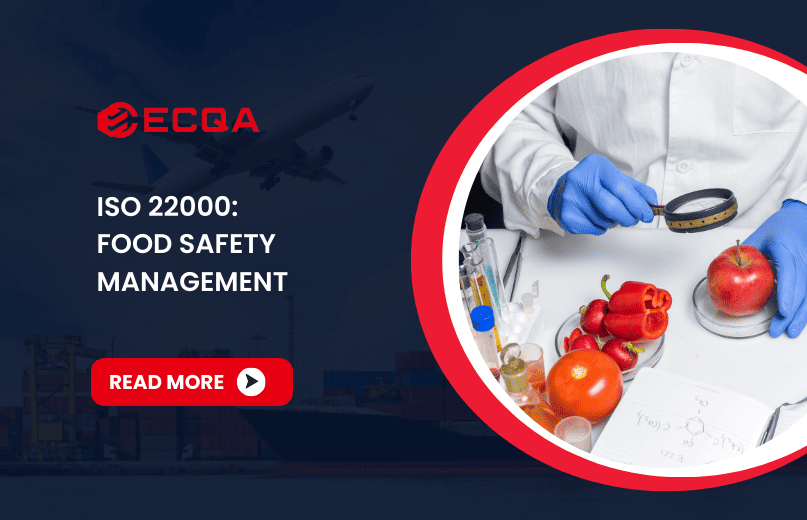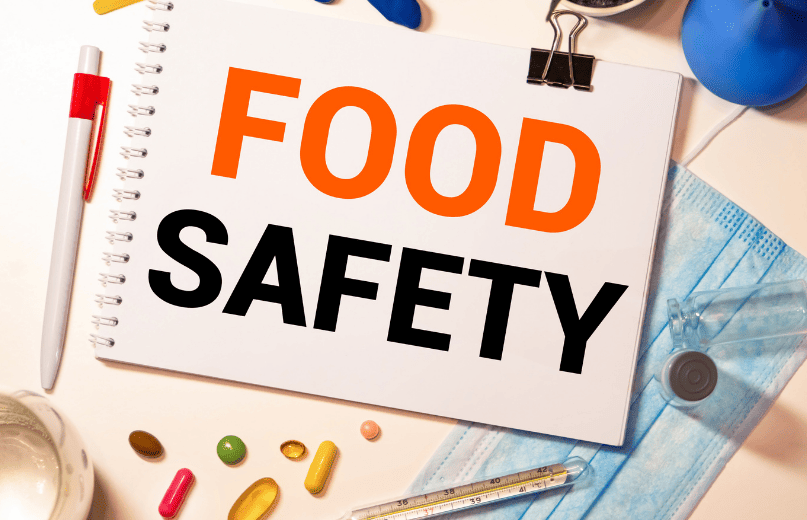
ISO 22000: Food Safety Management
ISO 22000 is an international standard that specifies the requirements for a food safety management system (FSMS). It provides a framework for organizations in the food chain to consistently identify, control, and minimize food safety hazards. This standard integrates principles of the HACCP (Hazard Analysis and Critical Control Points) system with ISO management system requirements, ensuring both preventive and systematic control across food operations.

The standard applies to all organizations, regardless of size or type, involved directly or indirectly in the food chain, including producers, processors, transporters, retailers, and service providers. Implementing ISO 22000 demonstrates a commitment to producing safe food, protecting consumer health, and complying with regulatory obligations.
ISO 22000 ensures that food businesses maintain control over every stage of production, handling, and distribution. The standard emphasizes hazard analysis, risk assessment, and continual improvement, aligning with global food safety practices and regulatory expectations. Organizations adopting ISO 22000 can reduce recalls, prevent contamination incidents, and strengthen their market reputation.
Key Requirements of ISO 22000
Food Safety Management System Structure (FSMS)
ISO 22000 requires a structured FSMS that integrates with an organization’s existing management processes. The system focuses on policy development, risk identification, operational control, monitoring, and corrective actions. Establishing a clear FSMS ensures that responsibilities, procedures, and accountability are clearly defined across all levels of the organization.
Key components of the FSMS include:
- Management Commitment: Leadership must demonstrate commitment to food safety, allocate resources, and establish objectives aligned with organizational goals.
- Communication: Effective internal and external communication ensures that food safety issues are identified, addressed, and shared among stakeholders.
- Documentation: Policies, procedures, and records must be maintained to provide traceability and ensure compliance.
Prerequisite Programs (PRPs)
Prerequisite programs are foundational control measures that address general hygiene and operational conditions. PRPs cover areas such as facility design, equipment maintenance, cleaning, personnel hygiene, and supplier control. These programs reduce the likelihood of hazards entering the food chain and provide a baseline for implementing HACCP plans.
Hazard Analysis and Critical Control Points (HACCP) Integration
At the core of ISO 22000 is HACCP, a systematic approach to identifying and controlling food safety hazards. Organizations must:
- Conduct a hazard analysis to identify biological, chemical, and physical risks.
- Determine critical control points (CCPs) where controls can prevent or eliminate hazards.
- Establish critical limits, monitoring procedures, corrective actions, and verification methods.
HACCP integration ensures that preventive measures are applied consistently and that any deviation is immediately addressed to avoid food safety breaches.
Monitoring and Verification
ISO 22000 emphasizes continuous monitoring and verification of processes. Regular inspections, audits, and validation of procedures confirm that the FSMS operates effectively. Documentation of these activities is critical for compliance and audit readiness.
Benefits of Implementing ISO 22000
Enhanced Food Safety and Risk Management
By implementing ISO 22000, organizations achieve systematic hazard control, which minimizes contamination risks. This structured approach ensures food safety at every stage of the supply chain, enhancing consumer confidence.
Regulatory Compliance and Market Access
ISO 22000 certification demonstrates compliance with national and international food safety regulations. For businesses targeting global markets, certification is often a prerequisite for contracts, imports, and partnerships.
Operational Efficiency
Adopting ISO 22000 reduces waste, prevents incidents, and streamlines operations. The clear structure of the FSMS allows organizations to identify inefficiencies, monitor processes, and implement improvements effectively.
Competitive Advantage
ISO 22000 certification serves as a mark of reliability and professionalism. Organizations gain a market differentiator that reassures customers, suppliers, and regulatory bodies that food safety is prioritized.
Improved Employee Engagement and Training
A structured FSMS encourages staff training, awareness, and accountability. Employees understand their role in maintaining food safety, which enhances operational consistency and reduces human error.
Implementing ISO 22000 establishes a robust food safety framework that protects consumers, strengthens regulatory compliance, and enhances operational efficiency. Organizations should begin by conducting a comprehensive FSMS assessment, integrating HACCP principles, and documenting all food safety processes. Certification provides assurance to stakeholders and reinforces trust in your food safety practices.
To strengthen your food safety management, learn more about related topics such as Food Inspection for Import/Export, Preventing Food Recalls, and Food Container Quality Control and Inspection. Contact ECQA today to begin the ISO 22000 certification process and ensure your organization meets global food safety standards.

 Request Free Sample Report
Request Free Sample Report